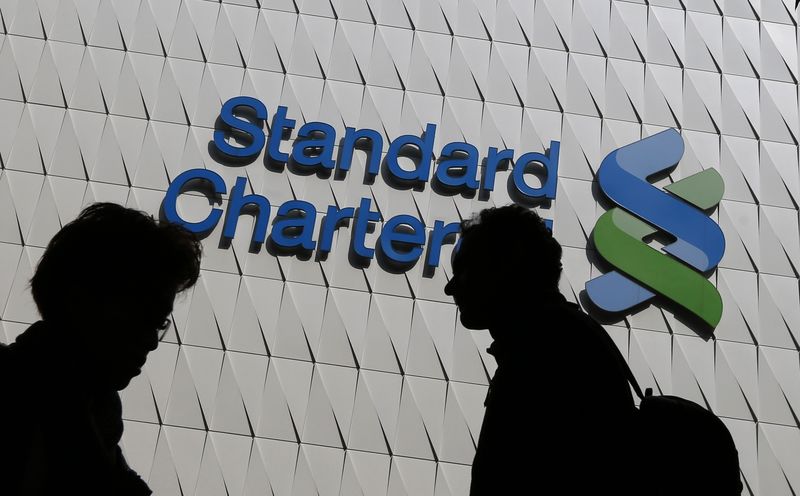By Steve Slater
LONDON (Reuters) - Asia-focused bank Standard Chartered (L:STAN) could need $4.4 billion (2.9 billion pounds) of extra provisions to cover losses from commodities loans, potentially forcing it to raise billions of dollars from investors, analysts said on Monday.
Credit Suisse analysts said the losses could force Standard Chartered to raise $6.9 billion to improve its core capital ratio to 11 percent by the end of the year.
"We think the needed provisioning could be large enough to require further capital measures, such as further equity raisin, and/or dividend reductions," analyst Carla Antunes-Silva said in a note.
Standard Chartered's shares were down 2.3 percent at 923 pence by 1330 GMT, the weakest major European bank.
A jump in Standard Chartered's bad debts in the third quarter has prompted concern that it could face heavy losses from commodities loans after the fall in the price of oil and commodities.
Credit Suisse's estimate was based on an "adverse" scenario that would see the bank need $4.4 billion to maintain its capital ratio, based on a potential $2.6 billion of pretax provisioning for commodities loans that sour and a higher risk-weighting on the loans.
It said the bank could announce a rights issue or cut the dividend at its 2014 results, due on March 4.
Standard Chartered declined to comment.
"We believe the last two years of de-rating have been driven largely by weaker revenue and that the asset quality deterioration leg is now setting in," said Credit Suisse, maintaining its "underperform" rating on the stock.
Analysts at JPMorgan and Jefferies also cut their target prices on the stock on Monday, saying that credit quality could deteriorate.
Standard Chartered CEO Peter Sands is under pressure after a troubled two years in which profits have fallen, halting a decade of record earnings. Some investors have said that Sands should go or the bank should set out succession plans.
Sands last week announced plans to close the bulk of the bank's equities business and axe 4,000 jobs in retail banking as part of a turnaround plan to cut costs and sharpen its focus.
The London-based bank issued three profit warnings last year and saw its shares tumble 29 percent.

Credit Suisse said that its analysis was based on default probabilities across Asian energy, metals and mining companies and an assessment of Standard Chartered's commodities portfolio.